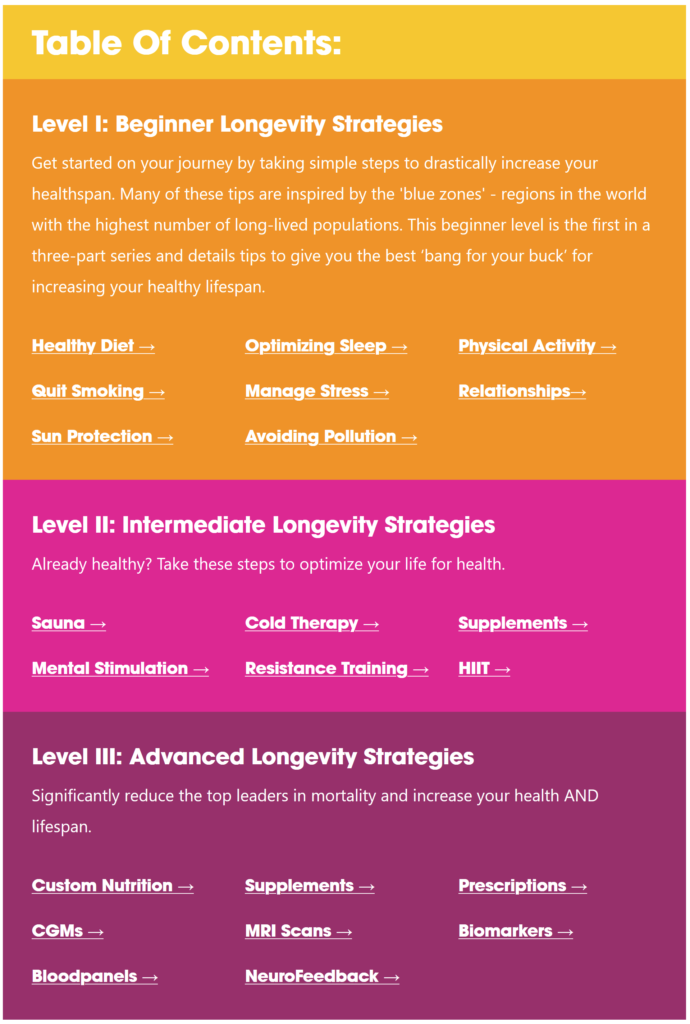I find the concept of longevity and longevity research fascinating, from both a scientific and philosophical perspective: it’s cool to read about how researchers have effectively reversed the ageing of some mice, and I find it endlessly curious how large swathes of society want to ‘solve’ ageing (or, maybe more accurately, the other things that kill us as we age).
[Longevity research is] trying to figure out what kinds of damage accumulate with age, how to reverse that accumulation, and the search for switches that we could flip in human biology to increase lifespan.
When I wanted to read more on the topic and get a better understanding of some fundamental concepts, I used and recommend two ‘longevity guides’ that are accessible and concise: Laura Deming’s Longevity FAQ and Spannr’s Longevity 101.
The Longevity FAQ provides a simple breakdown of (very) basic concepts in ageing research, followed by two-paragraph layman-friendly introductions to the nine major research areas with the most potential to make a positive impact (see below for details).

Longevity 101, on the other hand, takes a more practical rather than academic approach, and is billed as ‘The Ultimate Guide To Increasing Your Healthspan & Lifespan’. The site is beautiful and well researched (and referenced), providing easy reads on beginner, intermediate and advanced ‘strategies’:

Of course, as always, take everything with the usual caution: the science on the topic is still relatively new, and both guides are written by those with vested interests in the topic (one via the VC space).
And for interest, these are the nine major research areas from the Longevity FAQ:
- Caloric Restriction: eating less, in a variety of ways, can make you live longer – but is your body just using number of calories as a signal?
- Insulin/IGF: genetic pathways related to growth and insulin signaling are linked to aging
- Parabiosis: young blood makes old mice healthier, but why?
- Senescence: a fraction of your cells get older than the others, so we’d like to eliminate them
- Autophagy: the garbage disposal unit of the cell worsens with age, improving it might increase healthy lifespan
- Hypothalamus: a surprising number of things can increase lifespan when only changed in the brain tissue
- Reproductive System: removing the ability to reproduce can increase lifespan
- Mitochondria: mitochondrial mutations impact lifespan in counterintuitive ways
- Sirtuins: sirtuins can change DNA and increase lifespan
